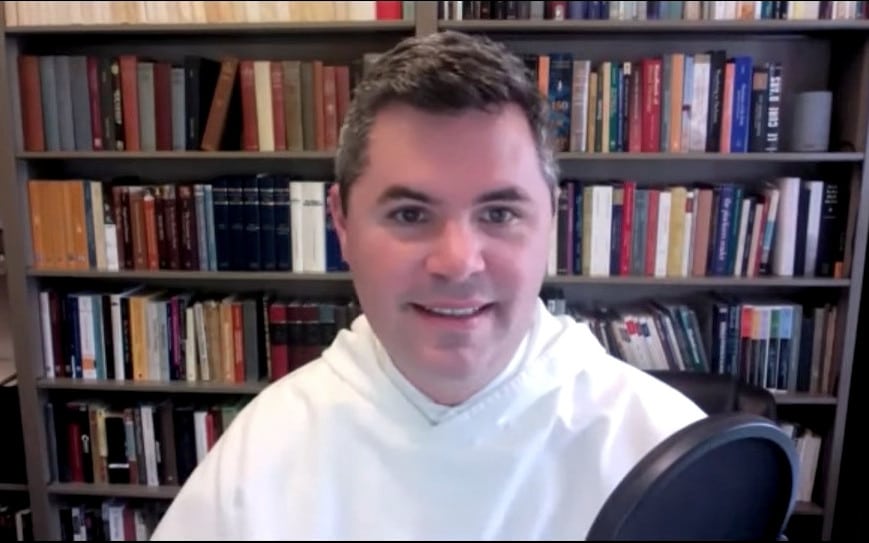 The traditional practices of prayer, fasting and almsgiving present a challenging, but welcome opportunity to turn away from distractions and seek the joy we can only experience by drawing closer to the Lord.
The traditional practices of prayer, fasting and almsgiving present a challenging, but welcome opportunity to turn away from distractions and seek the joy we can only experience by drawing closer to the Lord.
Even so, as popularly practiced, these important spiritual disciplines can unintentionally communicate an unhealthy and, frankly, ungodly attitude toward desire. I regularly hear from callers to my radio program and clients in my practice who feel guilty wanting or needing anything but God.
“My husband acts like he doesn’t want anything to do with me. I pray everyday for a better marriage, but nothing ever changes. I guess God is telling me that I’m just supposed to be satisfied with his love. Why can’t I just let this go?”
“We’ve been trying for a baby for so long. I feel so hopeless. I know I’m supposed to be happy with whatever God’s will is for me, but the desire doesn’t go away. Maybe if I was a better Christian. …”
“The bills just keep piling up. I don’t know what to do. I’m worried all the time. Maybe if I just loved God more, I could trust him to take care of us, and I wouldn’t be so anxious all the time.”
When I hear comments like this, I imagine an unwritten chapter in C.S. Lewis’ “Screwtape Letters,” in which the Senior Demon, Screwtape, counsels his nephew, a demon-in-training named Wormwood, on how to use a Christian’s good intentions against him. “If your patient must practice self-denial, let him do so in a manner that will leave him completely unfulfilled, despondent and alone. When he hears The Enemy (i.e, God) say, ‘Draw close and let me love you,’ let his efforts to respond leave him cold, resentful and guilt-ridden.”
The Christian walk does certainly call for self-denial. But too many Christians believe that self-denial requires the destruction of desire itself. It would surprise many Catholics who believe this to learn that they are better Buddhists than Christians.
The Buddha taught that the destruction of desire and passion was necessary to attain fulfillment. He taught that the only way to achieve Nirvana was to extinguish the need for anyone or anything. This is not the Christian way.
By contrast, as I note in my book, “Broken Gods: Hope, Healing, and the Seven Longings of the Human Heart” (Doubleday/Image, $21), Christians recognize that our needs and desires are hard-wired into us. God created us to need both other people and certain things; whether intimacy, security, justice, fulfillment or any other number of good things. The fact is, we cannot deny our desires without denying creation itself. Desire, at its most basic, godly core, is good. As Ecclesiastes (2:24-25) tells us, “There is nothing better for mortals than to eat and drink and provide themselves with good things from their toil. … For who can eat or drink apart from God?”
That said, because of sin, we are hopelessly bad at knowing how to pursue our desires in ways that are good for us and pleasing to God. For the Christian then, self-denial is not concerned with destroying desire, but rather, re-ordering it.
To properly practice self-denial, we must first acknowledge what we want and what we hope it would do for us to get it. Then we bring that desire and intention to God. “Lord, I don’t know how to pursue this desire in a way that will be good for me and pleasing to you. Please teach me.”
False self-denial says: “Lord help me to stop wanting my husband to love me. Let me just be happy with you.” True self-denial says: “Lord, I long for a marriage that will reflect the love between Christ the Bridegroom and the Church his Bride. But I don’t know how to do that. Teach me how to respond to my husband’s callousness in a manner that will be pleasing to you and challenge us both to be the whole, healed people you created us to be.”
False self-denial says: “Help me stop wanting a baby, Lord. Because I’m so miserable.” True self-denial says: “Lord, you have given me a desire to love and nurture children, but all the ways I’ve tried to fulfill that desire have been frustrated. I don’t know what to do. Teach me how to respond to this longing in a manner that will glorify you and satisfy the ache in my heart. Show me what to do next.”
False self-denial says: “Help me stop wanting to be financially secure.” True self-denial says: “Teach me to respond to these struggles in a way that will glorify you and enable me to meet the needs of those who depend on me. I trust you to teach me what to do.”
As you take up the cross of self-denial this Lent, instead of trying to annihilate the desires of your heart, bring them to God. Ask him to teach you how to meet them in a manner that will be pleasing to him and work for the ultimate good of everyone involved, including yourself.
Dr. Greg Popcak is the director of CatholicCounselors.com and the author of “Broken Gods: Hope Healing, and the Seven Longings of the Human Heart” (Doubleday/Image, 2015).







